If you’ve ever mixed up the roles of HR Coordinator and HR Generalist, you’re not alone.
The titles sound similar, and both jobs play critical roles in building great workplaces—but their focus, pace, and responsibilities couldn’t be more different.
Whether you’re new to HR or ready to take the next step in your career, understanding where your natural strengths fit best can make all the difference.
Let’s break down the key differences, the work styles that thrive in each role, and how to find your ideal HR path.
HR Coordinator vs. HR Generalist: What’s the Real Difference?
Think of HR Coordinators as the steady hands keeping everything running smoothly—and HR Generalists as the problem-solvers making sure people and policies align.
Both roles are essential to a well-functioning HR team, but they approach work from different angles.
HR Coordinators: The Detail-Driven Organizers
HR Coordinators handle the behind-the-scenes work that keeps everything in motion: scheduling interviews, maintaining employee records, processing new-hire paperwork, supporting benefits enrollment, and ensuring compliance with company and state regulations.
Their work ensures that no one drops the ball when it comes to the fundamentals.
HR Generalists: All-Around Strategists
HR Generalists work closely with managers and employees to handle employee relations, benefits management, training, and policy development.
Their job involves thinking big-picture: ensuring HR policies are consistent, fair, and aligned with business goals.
In short:
- Coordinators keep the machine running.
- Generalists make sure the machine is running in the right direction.

The Work Style That Thrives in Each Role
You don’t need a formal assessment to figure out where you’ll thrive in HR. It often comes down to your natural work style and what energizes you most.
If You’re Drawn to Structure and Detail…
…You might be an HR Coordinator at heart.
- You thrive on checklists, calendars, and color-coded spreadsheets.
- You love being the person everyone can count on for accuracy and follow-through.
- You’re patient, organized, and steady—someone who finds satisfaction in keeping things consistent and compliant.
When you’re the one catching errors before anyone else notices, or ensuring every form is filed correctly, that’s your superpower in action.
If You Love Variety and Problem-Solving…
…The HR Generalist role might be your perfect match.
- You like talking to people, navigating tricky situations, and finding solutions that work for everyone.
- You’re comfortable juggling multiple priorities and stepping into new challenges each day.
- You think strategically—balancing empathy with business needs.
If you’re energized by helping employees succeed, advising managers, or shaping culture, the Generalist path gives you the freedom and influence to do just that.
How To Identify Where You’ll Shine
Still not sure which side of HR feels right? Try this quick reflection:
Jot down three work moments from the past month that made you feel most confident. Did they involve organizing details, tracking processes, or ensuring accuracy? That’s Coordinator energy. Or were they about guiding others, problem-solving, or improving a system? That’s the Generalist mindset.
Your daily habits reveal more about your natural strengths than any title ever could. The key is to align what you do best with what each role demands—so you’re not just good at your job, but genuinely enjoy it.
Career Growth Paths in HR
The good news? There’s no wrong place to start.
Many HR professionals begin as Coordinators and grow into Generalist or Specialist roles as they gain experience.
Typical HR career paths look like this:
HR Coordinator → HR Generalist → HR Manager → HR Business Partner or HR Director
Along the way, you might find yourself specializing in areas such as:
- Recruiting and Talent Acquisition
- Compensation and Benefits
- Diversity, Equity & Inclusion (DEI)
- Employee Relations
- HR Analytics
And with HR continuing to evolve—especially around technology, compliance, and employee engagement—there’s never been a better time to grow in this field.
According to the U.S. Bureau of Labor Statistics, employment for HR specialists and managers is expected to grow faster than average through 2032.

Find the HR Role That Fits You
Whether you’re the steady hand behind the scenes or the strategist connecting the dots, both paths play an essential role in creating healthy, high-performing workplaces.
At Stivers, we partner with HR professionals who bring all kinds of strengths to the table and help them find roles where those strengths truly shine.
If you’re exploring your next HR opportunity, we’d love to help you find your fit: Explore current HR openings.




